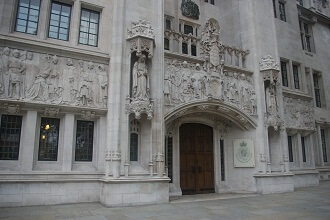Government Unveils New Victims’ Strategy
Government Unveils New Victims’ Strategy

The victims of stalking, harassment and serious sexual crimes could be given the legal right to appeal against lenient sentences handed to their assailants, under new government proposals.
The first-ever cross-government Victims Strategy means more victims may be able to ask for a case to be reviewed if they feel that sentencing has not been just. In addition, new legislation could make it easier for victims to give a statement outlining how the offence affected them, as evidence for the consideration of a parole board determining whether to release a prisoner.
The efforts to involve victims more closely in the parole process follow the case of serial rapist John Worboys, in which the convicted criminal was granted early release without all of his victims being made aware. Just 15% of victims currently provide a personal statement on the impact that an offence has had on them.
Announcing the proposed strategy, Justice Secretary David Gauke emphasised the government’s commitment to “enshrine victims’ entitlements in law by beginning a consultation early next year, and otherwise seek to boost the Victims’ Code.”
Unduly Lenient Sentence scheme to get updated
The Victims’ Code was established under the Domestic Violence, Crimes and Victims Act 2004 and outlines the minimum level of support that victims of crime should be given by the criminal justice system. Although established by statute, the Code itself does not have a legally binding status, and instead currently operates as a set of policy guidelines.
Meanwhile, the Unduly Lenient Sentence scheme – created by the Criminal Justice Act 1988 – provides for the victims of some criminal offences to request a sentencing review in certain cases where they feel the sentence was “unduly lenient.”
It currently covers some of the most serious criminal offences such as murder, rape and terrorism. However, government officials are now debating whether a wider range of offences should be included in the scheme’s provisions, as part of broader consultations and proposals to modernise and reform criminal justice.
The new strategy would aim to more clearly outline and develop the support that crime victims are offered “at every stage of their journey through the justice system” – from providing police statements to giving evidence in court.
Research conducted for the consultation revealed that fewer than 20% of victims were aware of the Victims’ Code and its guidelines regarding their entitlements.
Theresa May has championed the plan for reform of legal rights for the victims of crime, asserting: “How we support victims is fundamental to a caring society, and in recognition of that we are taking steps to enshrine their rights in law for the very first time.”
London Victims’ Commissioner deems strategy insufficient
While the government has commended itself for working to protect the criminal justice rights of victims in legislation, some campaigners for victim justice have been more critical.
Victims Commissioner for London Claire Waxman has criticised the proposals’ shortcomings in:
“fail[ing] to address the importance of safeguarding the rights of victims from being cross-examined unfairly, and on irrelevant material that undermines their credibility.”
Waxman faults the draft Victims’ Bill as insufficient, emphasising the need to boost the legal enforceability of the Victims’ Code and any future legislation by improving funding and granting the National Victims’ Commissioner powers to penalise agencies suspected of breaching the Code.
The National Victims’ Commissioner for England and Wales, Baroness Newlove, has nevertheless heralded the strategy, praising its “timely focus” on victims’ legal rights in the criminal justice system.
Victim Support charity leader Diana Fawcett in turn called the proposals “much needed,” and stated that the charity would be working closely with the Justice Department to “ensure that the reforms truly work for victims.”
Contact our leading criminal defence experts
IBB Solicitors has one of the leading teams of criminal defence solicitors in West London and the South East. If you are facing a serious criminal charge, you can contact a member of the IBB’s Criminal Defence team. Call us now in complete confidence on 0330 999 4999 for immediate emergency representation. Alternatively please email criminaldefence@ibblaw.co.uk.
